Liver cleansing is a term and a way to help the body detoxify this vital organ. Detoxification involves dietary and lifestyle changes - eating more fruits and vegetables, avoiding processed foods, and including nutritional supplements that can help support the Liver is the way to go.
CLEANING THE LIVER: Cleaning the Liver! | Images of Liver | What is cleaning? | DECEPTION and what is true? | Liver and functions | Symptoms of a damaged liver | What harms the Liver? | Liver Help | Prevention | Questions and Answers | Sources/references
Cleansing the Liver has become a regular practice of many individuals or even a necessity, especially in modern times, when we are all well aware of our health and want to live as well as possible. We feel better after the treatment.
Your body has several mechanisms for removing waste. Toxins, metals, effects of pollution, alcohol, caffeine, and drugs are controlled by the following systems in a healthy individual: lymphatic system, kidneys, skin, lungs, and Liver. However, the systems above can become overloaded, especially if we are constantly exposed to pollutants through food, water, clothing, and cosmetic products.
Many believe the Liver will help the body remove toxins after overeating or consuming unhealthy foods. Others hope it will improve his day-to-day well-being, while others believe it will help treat liver disease.
Your body's overworked systems still struggle to effectively remove the listed toxins from your body when you are exposed to too much toxicity.
Images of the Liver - healthy and unhealthy
Image: images of a healthy liver on the right and a fatty liver on the left.
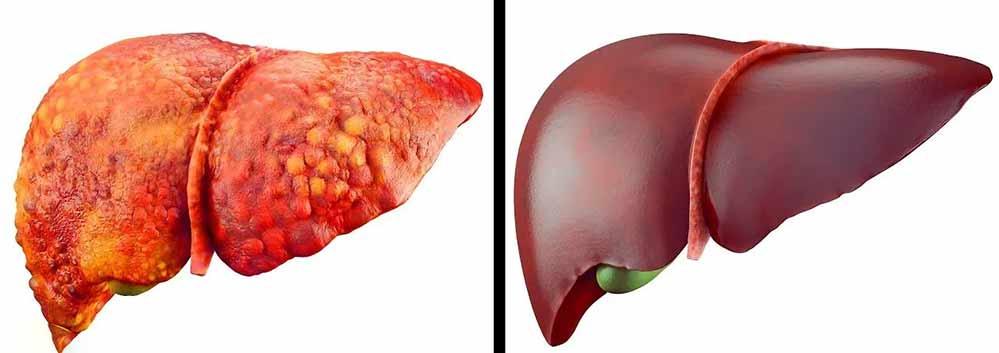
Image: the appearance of fatty Liver under a microscope. White islets are visible areas of fat that accumulate in healthy livers and make them fat.

Image: the difference between a normal liver on the left and a light fatty liver on the right.

Make sure your Liver stays fat-free for a long time.
What is liver cleansing or "detox"?
Detox or liver cleansing is a program that effectively removes toxins from your body, helps you lose weight, or improves your health.
When health problems with an unhealthy liver are identified, there is often a desire to do everything possible, take an active role in the process, and remediate the resulting situation as quickly as possible and, if possible, yourself. However, if you think you need a liver detoxification treatment, you should know that it may not help you. So what are the advantages and disadvantages of the average ingredients in such treatments? We explain below - and above all, can we count on them?
Myth # 1: Liver cleansing is essential
Many believe a cleanse will help their Liver remove toxins from drinking too much alcohol or eating junk food. Some people even hope this type of cure will help the Liver so its functioning will be optimal and often better than before the detoxification cure. Many individuals even believe that drinking detox juices will help treat liver disease.
The answer to the myth:
There are specific medications to treat liver disease - unfortunately, liver disease cannot be cured with a detoxification course. It is necessary to realize that detoxification programs or nutritional supplements do not eliminate liver damage; they can be dangerous if taken incorrectly.
Why?
Detoxing can harm your Liver.
Studies have shown that liver damage due to herbal and dietary supplements is even on the rise.
Green tea extract (Green Tea extract), for example, can, with unregulated and, above all, excessive resistance would cause damage similar to that caused by hepatitis. As a detoxification cure for the digestive tract, there are ideas about enemas of the large intestine with coffee. However, this type of practice can cause many infections and, in the long term, often problems with electrolytes, which can even be fatal.
Consultation with a pharmacist is appropriate for such intentions, even though the matter may be more intimate.
In these topics, many sellers mainly count on customers' ignorance, and we pharmacists are here to dispel some myths that some sellers may unknowingly use as their primary sales tactic. That's why the first tip is
DECEPTION and what is true?
We have collected some deceptions that often appear as part of the tactics used to improve the condition of the Liver and improve the effectiveness of the detoxification cure:
- Drinks are used in some detoxification procedures, but unpasteurized juices, in particular, can make you seriously ill, especially if you are elderly or have a weakened immune system.

- If you have kidney problems, a cleanse that includes large amounts of juice can worsen your condition.
- If you have diabetes, consult your doctor before starting a diet that changes your usual way of eating.
- If you fast as part of a detox program, you may feel weak or faint, and you may also experience headaches or even become dehydrated. In addition, if you have hepatitis B, which has caused liver damage, fasting can worsen the damage.
Myth # 2: Liver cleansing helps with weight loss
Unfortunately, there is absolutely no tangible evidence to support this myth. Some studies suggest that specific cleansing diets lower the metabolism itself and, as a result, slow down the processes of possible loss of extra pounds.
From time to time, people claim that they have lost a few kilograms, etc., after a detoxification course. However, it is necessary to know that in these cases, the problem is only the lost body fluid, and often after stopping weight loss in this way, the weight soon returns.
However, specific techniques tend to help:
CALORIE INTAKE - the recommended daily caloric intake is between 1,600 and 2,400 calories for women and 2,000 and 3,000 calories for adult men.
CONSUMPTION OF CALORIES - physical exercise is necessary to lose excess calories and consequently to lose excess kilograms.
QUALITY OF DIET - the calories you eat are important, but the quality of your food is also essential. Eating a small amount of processed food often also makes it impossible to lose the excessive amount of accumulated kilograms as successfully as possible.
Choose quality nutrition:
- fruit
- vegetables
- unprocessed grains, nuts
- healthy fats
- proteins such as fish, eggs, and chicken meat.
Check advice with people you can trust.
Symptoms of liver dysfunction and liver overload
Liver failure manifests itself mainly in the following symptoms:
- Jaundice (yellowing of the skin and eyes) - this is usually visible, especially in some babies
- Pain and swelling of the abdomen
- Swelling of legs, ankles, and limbs
- Changes in the color of stool and urine
- Fatigue, exhaustion
- lack of power
- headache
- Loss of appetite
- bruising - not excessive
- nausea, discomfort
- vomiting
The diseased state of the Liver can also be a genetic problem. Still, it can also be caused by other factors, such as viral infections, age, obesity, or excessive alcohol consumption. If this injury is not treated, it can be fatal.
Liver - our second-largest organ
The Liver is our largest organ, located in the upper part of the abdominal cavity. It is a forcefully vital organ where metabolic and other processes take place. At the same time, it performs many vital functions, such as filtering harmful substances, protein synthesis, storage of glucose in the form of glycogen, and fat synthesis/metabolism. In addition, the Liver is the main organ for removing toxins from the body. The Liver is also the most important organ for metabolism, as it provides energy for all body functions and is the primary regulator of metabolism.
Video content: liver - functions

The Liver performs many tasks - including bile production, which is needed to digest fats and synthesize cholesterol. In addition, the Liver synthesizes essential proteins that function as blood clotting. The Liver synthesizes many proteins and proteins, enzymes, and other substances that help digestion.
However, it should be emphasized that the Liver is sensitive to the harmful effects caused by toxins, viruses, and other health problems, so it is essential to take care of optimal liver health.
Because the Liver is such a vital organ, we must do everything we can to keep it healthy. If you feel sick or think you have liver disease symptoms, consult your doctor. If you have been in contact with someone infected with the hepatitis virus, you must be protected by vaccination. In addition, regular examinations can help detect liver diseases.
Tasks of the Liver
The Liver is the second largest organ in your body after the skin and the only organ that can lose up to 75% of its mass and grow back to its full size. The Liver weighs about 1.5 kg and holds up to about half a liter of blood at any given moment of the day.
Among other things, the Liver performs more than 500 vital functions, including producing cholesterol and proteins for the blood plasma, converting excess glucose into glycogen for storage, and regulating the status of amino acids such as glutamine.
1. METABOLISM
The primary and most crucial role of the Liver is primarily the metabolism of everything absorbed in the digestive tract - we are talking about the metabolism of nutrients. For example, absorbed carbohydrates are transformed in the Liver into glucose, the basic unit the body can use as a critical energy source.
The basis of liver function is a liver cell called a hepatocyte. This basic building block contains many enzymes that participate in various metabolic processes.
Video content: liver metabolism, protein synthesis

The Liver metabolizes both valuable and all kinds of harmful substances that are absorbed through the digestive tract.
Liver function is optimal.
The functioning of hepatocytes and their activity depends on the body's needs. For example, if the need for a specific metabolic product is more significant, then the activity of hepatocytes is also more pronounced. Therefore, the release of enzymes is highly regulated according to the organism's needs and is only triggered when the need arises.
CARBOHYDRATE METABOLISM
Glucose is the primary vital source of energy for all cells of the human body - it is essential not to run out of it for the brain. It is the Liver that helps regulate blood glucose, and the release of glucose depends on two essential hormones, insulin, and glucagon, which also regulate the release of glucose from stores.
After eating, if it is enriched with glucose, it enters the Liver, and the glucose level in the blood temporarily rises. Then, with the help of glycogenesis, the excessive amount of glucose is transformed into a new form - glycogen, which is suitable for storage.
Figure: Blood sugar profile after eating toasted rice at noon. As long as we do not move or use current energy, the increase in free blood glucose in the blood is significant.
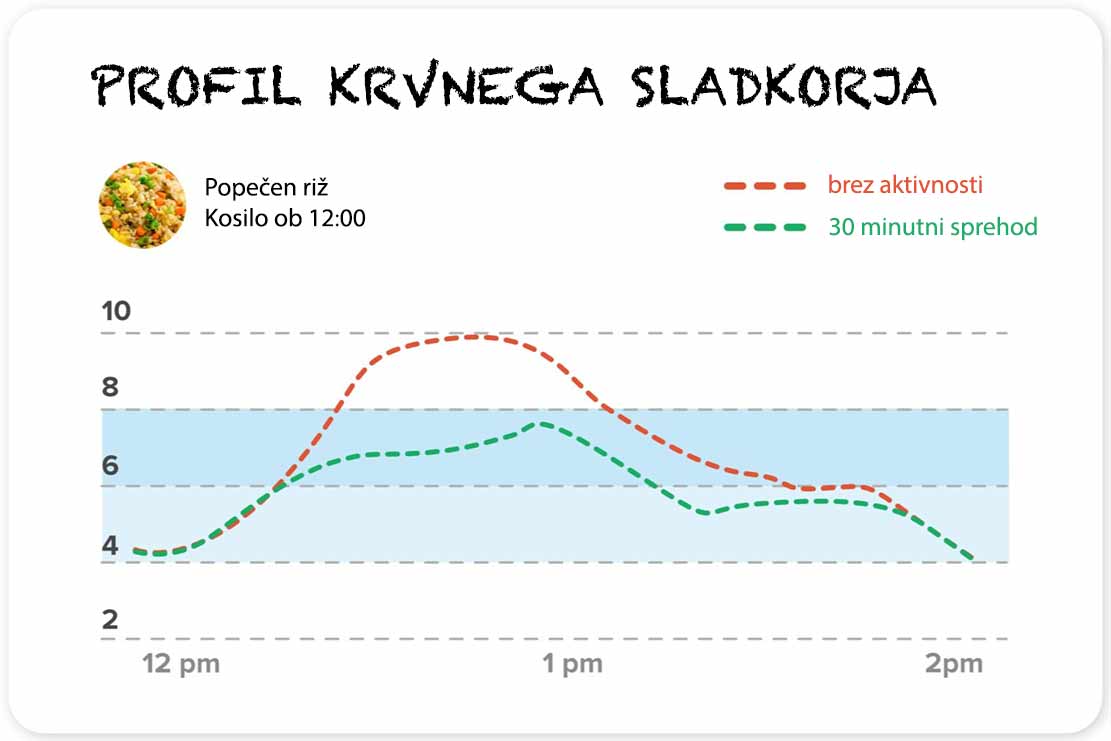
Glucose not converted into glycogen is used in glycolysis, whereby glucose is converted into energy that the organs need for their work.
During meals or especially during starvation, the glucose level in the blood decreases. Hepatocytes detect this change and begin by restoring glucose levels either by glycogenolysis, which converts glycogen back into glucose or by gluconeogenesis, in which non-sugar molecules such as amino acids are converted to glucose.
FAT METABOLISM
The Liver is also involved in fat metabolism, synthesizing lipoproteins, cholesterol, and phospholipids.
Also, lipid components are often a good energy source if glucose and other non-glucose sources are in short supply. Watts. The speed of this type of fat conversion depends on the energy needs of the organism itself and the state of physical activity.
If too much free fat is in the bloodstream, the Liver prepares to store it. Lipogenesis is a metabolic process in which fatty acids and glycerol are converted into a form suitable for storage in the subcutaneous tissue and other stores in the body.
Figure: the display of newly consumed glucose compared to fasting time. Liver glycogen is consumed earlier than in 1 day.
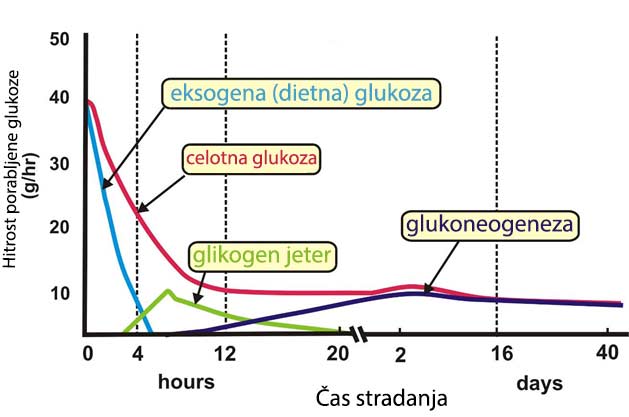
If there is a need for energy, and at the same time, the glucose level is low, the fat stored in the subcutaneous tissue is converted into a usable form - this happens through lipolysis. The process above occurs in fat cells, where fatty acids and glycerol are further transferred to the Liver - where the resulting components are used as an alternative energy supply.
PROTEIN METABOLISM
The transfer of amino acids to the Liver occurs in the metabolism process, where most of the body's proteins are synthesized. If there is excess protein, amino acids can be converted into fat and stored in fat depots or, if necessary, converted into glucose through gluconeogenesis.
But before amino acids can be converted into glucose, the first step is to remove the NH2 nitrogen-containing group. This critical metabolic process is called deamination.
Deamination occurs in hepatocytes, where NH2 (amino group) is removed and turns into ammonia NH3, which is very toxic to the body. The Liver quickly converts ammonia into urea, which can only be excreted in the urine and removed from the body.
The Liver, therefore, takes care of many processes in the body...
2. DETOXIFICATION OF THE ORGANISM
The Liver is a vital detoxifying organ, removing all endogenous and exogenous compounds that harm the body from the blood meal. The Liver has its system of phagocytic cells that fight against such substances - we call them Kupffer cells, which take care of the waste products of all body cells. The remains of cellular structures also take care of the bacteria present, which they eliminate from the body.
Video Content: Liver Functions

Other exogenous substances, such as drugs and alcohol, are also detoxified in the Liver.
The Liver also deals with endogenous waste products (the body produces). For example, amino acids are deaminated in the Liver, some hormones are inactivated, and bilirubin, the breakdown product of old red blood cells, is also removed by liver metabolism and thus becomes harmless.
3. STOCK STORAGE
The Liver plays a vital role as a storehouse of certain substances. For example, hepatocytes accumulate and store many vitamins and minerals from the blood, including vitamins A, B12, D, E, K, and minerals such as iron and copper.
Glycogen is a product created from excess glucose and stored in the Liver - glycogen reserves in the Liver are enough for a bad day. In the case of fasting, after using glycogen, the reaction of gluconeogenesis begins.
4. BILE SYNTHESIS
Bile synthesis is essential for the quality digestion of food, which takes place in the alimentary canal.
Bile consists of water, bile salts, cholesterol, phospholipids, and electrolytes and is stored in the gallbladder. The purpose of bile is to aid in the digestion of fats; the presence of fats in food stimulates the gallbladder to empty itself regularly. As a result, bile flows into the interior of the digestive tract in the duodenum.
5. PRODUCTION or SYNTHESIS OF SUBSTANCES
The production and synthesis of some essential substances take place in the Liver:
- plasma proteins
- Vitamin D
- enzymes that help in the metabolic process
- cholesterol - cholesterol is essential, and excessive production of cholesterol can be a big problem for the body.
- bile
Leaky Gut and Your Liver
Leaky gut can be caused by a poor diet high in gluten, dairy, and toxins like alcohol and caffeine, as well as stress, heavy metals, medications, and gut infections, including SIBO and candida overgrowth. In addition, more particles can enter your bloodstream when your stomach is permeable, sending them to your Liver, making it harder to filter them out of your blood.
In response, your immune system releases waves of inflammation to fight foreign invaders. Unfortunately, Wowš's immune system becomes overwhelmed and works less precisely due to being on high alert, which can cause your tissues to become trapped and cause a wave of symptoms. If the condition is left untreated, it can eventually turn into full-blown autoimmunity.
Myth # 3: Liver cleansing can regenerate the Liver
Unfortunately, for once, there is no evidence to suggest a successful regeneration of the intestinal tissue after the purification cure itself. Damage to the skin and organs results in the formation of scars - fortunately, the Liver is an organ that can regenerate, but this also takes a certain amount of time.
Regeneration, therefore, requires time - if you continue taking medication and further burdening the Liver, the regeneration process will be further complicated. It is also similar to alcohol consumption or poor-quality diets.
There are no symptoms directly related to intestinal permeability. But intestinal permeability is usually the result of damage to your intestinal lining, and this can lead to the development of the following symptoms:
- Burning sensation of ulcers in the intestines.
- Painful indigestion due to loss of intestinal mucosa.
- Diarrhea.
- An overgrowth of bacteria causes gas and bloating due to fermentation in the gut.
- Low energy due to reduced ability to extract energy from food.
- Gastrointestinal mucositis due to radiotherapy.
WHAT DAMAGES THE LIVER?
These are the factors that cause proven adverse effects on the Liver:
- too frequent and excessive use of alcohol
- obesity and lack of exercise
- type 2 diabetes
- Tattoos, piercings, and similar dermal interventions
- injecting drugs using shared needles
Video Content: Signs You May Have Liver Problems

- blood transfusion, which was problematic in this sense before 1992
- exposure to other people's blood and body fluids
- unprotected sex
- exposure to certain toxic substances
- family history
Complications of liver disease vary depending on the cause of your liver problems. However, if liver disease is not treated, it can progress to liver failure, a life-threatening condition.
Cleansing the Liver - help the Liver.
You don't need fancy liver juice to cleanse or an expensive liver detox program to get your Liver back on its feet. Instead, these natural steps promote detoxification and promote healthy liver function.
Drink plenty of water.
The simple fact is that drinking plenty of water helps keep the kidneys and Liver healthy and in perfect condition. Your Liver and kidneys work together to remove toxins from your bloodstream and convert them into less harmful products that are further excreted in your urine. The kidneys and Liver mainly use water to remove toxins from the body. Your Liver will undoubtedly suffer if you are dehydrated and drinking too much fluid.
The water you drink every day should be of good quality - your Liver will not be detoxified if the water you drink contains heavy metals and other poisons. So drink filtered water throughout the day to get the most out of its effects.
Eat good quality food.
An inadequate diet can also cause a burden on the Liver - excessive consumption of a diet enriched with caffeine, alcohol, processed ingredients enriched with refined sugar, bad fats, additives, and preservatives is not something that benefits you and your Liver.
Video content: the highest quality diet for liver cleansing

It is reasonable to eliminate products and foods that cause many intolerances, such as dairy products and gluten, from the diet. Gluten disturbs digestion in some individuals, as it can damage the stomach and cause a "leaky gut," which negatively affects the other body's other organ systems. Tko toxins enter your Liver and make its work more difficult.
Trans fats are saturated fats that are difficult for the body to process, increasing the risk of cardiovascular disease and cholesterol levels. Trans fats also affect your immune system and can make you sick bna inflammation.
Instead of the mentioned ingredients, eat a diet full of organic fruits, vegetables, and small amounts of quality meat. Also, add enzymes to the diet to support optimal digestion and absorption of nutrients.
Eat foods rich in potassium.
According to some research, metabolic diseases, including type 2 diabetes and fatty liver disease, are increased by low potassium levels. Potassium has many health benefits, such as lowering blood pressure, improving heart health, and promoting optimal liver function, but too much of it can be very harmful.
Foods rich in potassium are easy to include in your diet. Sweet potatoes are considered to be the food with the highest potassium content. In addition, sweet potatoes are also rich in beta-carotene, vitamin B6, vitamin C, vitamin D, magnesium, and iron. Spinach and bananas are also excellent sources of potassium.
Reduce your exposure to toxic substances.
Avoiding toxins in today's world of heavy metals, plastics, mold, and synthetic chemicals is problematic. Each of us is exposed to an incredible amount of toxins. These industrial chemicals are even the main ingredients of our cosmetics and personal care products.
When it comes to maintaining or wanting to improve the functioning of your immune system, maintaining a balanced diet and a quality lifestyle is a great place to start. One way to help the Liver is through supplements, especially those containing selenium, glutathione, and milk thistle.
Questions and Answers
How do you help to cleanse the Liver yourself?
Drink plenty of water: water is the best means of flushing the Liver and purifying it...
Exercise regularly: exercise helps burn extra calories, which reduces the risk of diabetes, being overweight, high blood pressure, and high blood fat[1].
How can we naturally detoxify our Liver?
For example, limit the amount of alcohol consumed, and eat a well-balanced diet throughout the day (five to nine servings of fruits and vegetables, along with fiber from vegetables, nuts, seeds, and whole grains). In addition, don't forget to include proteins and enzymes in your varied diet, which also help the body in natural detoxification[2].
Can lemon water detoxify your Liver?
Including many citrus fruits in the drink makes sense - including lemon. Lemon can be added to water to promote liver detoxification. To improve liver function, consume 4-6 tablespoons of lemon juice mixed with water every day[3].
Sources and references
Source: Family Health Guide. Conventional and alternative treatment, Dr. Jajo Lajovic, Publishing House Mladinska knjiga
1. How Long Does It Take to Cleanse Your Liver From Alcohol?- https://www.medicinenet.com
2. Can a Detox or Cleanse Help Your Liver? - https://www.webmd.com
3. Cleanse Your Liver - https://www.patientfirst.com





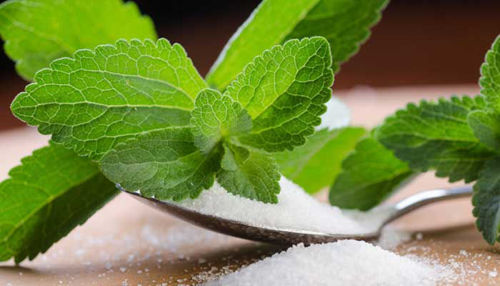
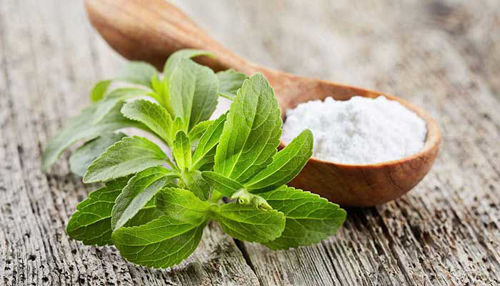
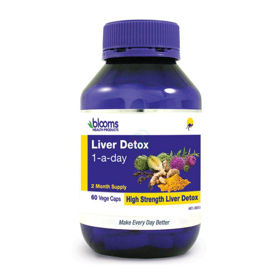
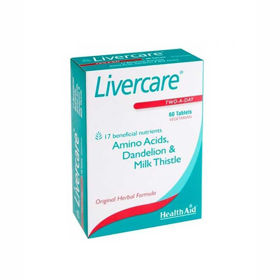
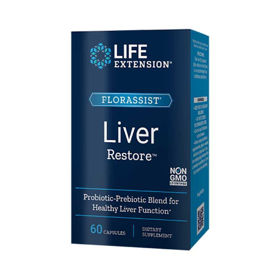
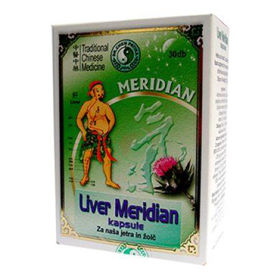

 Facebook
Facebook
 Instagram
Instagram
 info@moja-lekarna.com
info@moja-lekarna.com

